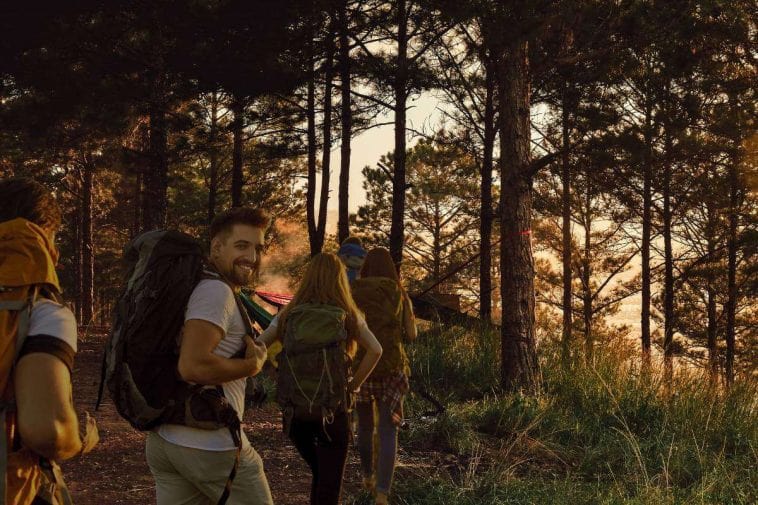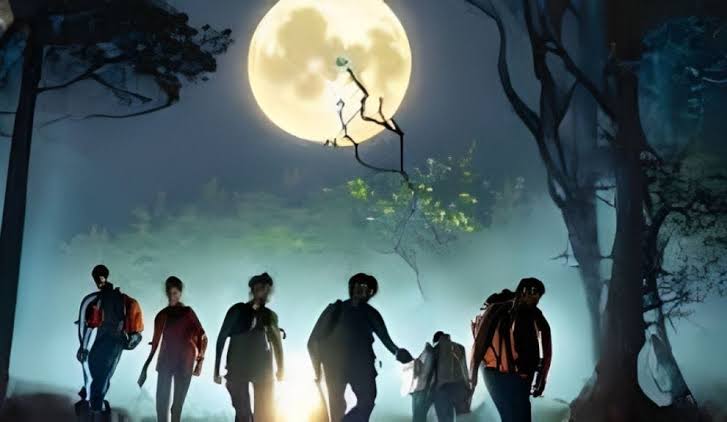I went to Trails Carolina hoping for help, but it felt more like a punishment. The staff was harsh, and the conditions were tough, leaving me scared and alone. Instead of healing, I came back with more anxiety and emotional scars.
“Trails Carolina Horror Stories” are about troubling experiences shared by former participants, including mistreatment, tough conditions, and not enough supervision. People say it felt more like punishment than therapy.
This article explores Trails Carolina Horror Stories, revealing mistreatment, tough conditions, and supervision issues from former participants.
What is Trails Carolina?

Trails Carolina is a wilderness therapy program for adolescents aged 10 to 17 facing behavioural and emotional challenges. It integrates outdoor activities such as hiking and camping with therapeutic interventions to promote resilience, responsibility, and healthy coping mechanisms.
Family involvement is integral, supporting teens in a structured, supportive environment aimed at fostering personal growth and development. Trails Carolina offers a comprehensive approach that aims to help teens build skills and insights necessary for overcoming challenges and thriving in their daily lives.
The Promise of Wilderness Therapy:
The promise of wilderness therapy is to help teenagers by taking them away from their normal surroundings and into nature. This environment helps them learn new skills and ways to manage their emotions.
Wilderness therapy combines outdoor activities with therapy sessions to strengthen teens emotionally and teach them how to handle challenges more effectively. Overall, it aims to be a positive experience that boosts their confidence and sense of responsibility.
Benefits Promised:
- Emotional Growth: Helping teens develop stronger emotional resilience.
- Skill Development: Learning new coping mechanisms and problem-solving skills.
- Personal Empowerment: Building confidence and a sense of personal responsibility.
- Behavioural Improvement: Encouraging positive behavioural changes through outdoor challenges.
- Family Connection: Strengthening family relationships through involvement in the therapeutic process.
However, these stories of success often don’t talk about the harder parts of the experience.
Emergence of Horror Stories:
Despite the positive promises, many horror stories about Trails Carolina have come to light. Former participants and their families have shared troubling experiences, revealing serious concerns. They talk about mistreatment, not enough supervision, and severe emotional and physical distress.
These negative stories are very different from the program’s advertised benefits and have raised alarms about what really happens at Trails Carolina. Many of these stories have led to public outcry and calls for better rules and oversight of such programs. Parents are now more cautious and thoroughly researching before enrolling their children.
Personal Accounts:

Former participants of Trails Carolina have shared many personal accounts that are deeply troubling. They talk about feeling isolated and scared during their time in the program.
Some describe the experience as harsh, with long hikes in extreme weather and little rest. Others mention strict and sometimes unfair disciplinary measures that made them feel more punished than helped.
These stories highlight the emotional and physical challenges they faced, painting a picture that contrasts sharply with the program’s promises of support and healing.
The Impact on Families:
- Strained Relationships: Many families report that their relationships became strained or damaged due to the program’s impact.
- Emotional Toll: Parents often experience guilt, anxiety, and distress after hearing about their child’s negative experiences.
- Long-term Psychological Effects: Both teens and their families may suffer long-term psychological effects, including increased anxiety and depression.
- Trust Issues: Trust between parents and their children can be significantly damaged, making future communication and support more challenging.
- Financial Burden: The cost of the program, coupled with potential legal and medical expenses, can put a financial strain on families.
- Need for Additional Therapy: Many families find that they need to seek additional therapy or support services to address the aftermath of the program.
Staff and Supervision Issues:
- Qualifications: Concerns about staff lacking proper qualifications or training, leading to questions about their ability to handle the complex needs of participants.
- Allegations: Reports of verbal abuse and neglect by staff members.
- Supervision: Issues related to inadequate supervision of participants during activities.
- Impact: How these issues contribute to the negative experiences reported by participants.
- Regulatory Oversight: Discussion on the need for stricter regulations and oversight of wilderness therapy programs.
- Improvement Measures: Efforts by Trails Carolina to address staff training and supervision concerns in response to criticisms.
Physical and Mental Health Concerns:

Participants in Trails Carolina have raised significant concerns about their physical and mental well-being during the program. Many have reported that their physical health needs were not adequately addressed, with injuries and illnesses sometimes being ignored or insufficiently treated.
Mentally, participants have experienced increased anxiety, depression, and symptoms of post-traumatic stress disorder (PTSD) following their time in the program.
These issues highlight the importance of proper medical care and emotional support in wilderness therapy settings to ensure the safety and well-being of participants throughout their therapeutic journey.
Frequently Asked Questions:
1. What is wilderness therapy?
Wilderness therapy combines outdoor activities like hiking and camping with therapeutic techniques to promote personal growth and emotional healing in natural settings. The goal is to develop resilience and healthier coping skills through immersion in nature.
2. Are all wilderness therapy programs problematic?
No, not all wilderness therapy programs are problematic. While some may have issues, many programs prioritise participant safety, well-trained staff, and effective therapeutic outcomes.
3. How can parents ensure a program is safe?
Parents ensure program safety by researching its reputation, checking staff qualifications, visiting if possible, asking about safety protocols, and seeking testimonials from other families.
4. What are the signs of a good wilderness therapy program?
A good wilderness therapy program ensures safety with qualified staff, integrates therapy and outdoor activities, offers personalised plans, communicates openly with families, and receives positive feedback for fostering growth in natural settings.
5. Where can I find support if my child has had a negative experience?
If your child had a negative experience with a wilderness therapy program like Trails Carolina, seek support from advocacy groups, consider therapy for emotional impact, consult legal advice, join online communities for support, and educate yourself for guidance.
Conclusion:
In conclusion, while wilderness therapy programs promise transformation, the prevalence of troubling stories raises concerns about safety and participant well-being. Families should seek support from advocacy groups, therapy, legal advice, and online communities for guidance.









